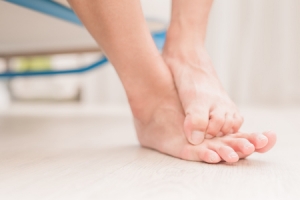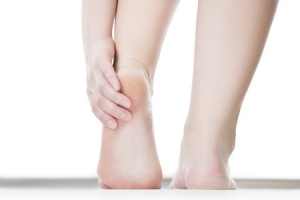Connect With Us
Blogs
Displaying items by tag: Psoriasis
Facts about Psoriasis
During the month of August, we at Superior Foot & Ankle Care Center recognize Psoriasis Action Month. Psoriasis can appear on your legs and feet as well as on other parts of your body. Below are some facts about this condition and what can be done about it.
FACT: Psoriasis is a chronic disease of the immune system. It manifests most often as a skin condition. In people with psoriasis, new skin cells come to the surface too rapidly. This results in an inflammation of the skin.
FACT: It’s estimated that 8-12 million Americans currently suffer from psoriasis.
FACT: Psoriasis often first develops in patients between the ages of 15 and 25, but can strike at any age.
FACT: Researchers believe that the cause of psoriasis is a combination of an inherited genetic tendency for the disease combined with exposure to certain external triggers. Several possible triggers have been identified, including stress, certain medications, an injury or infection. Triggers are not the same for each person.
FACT: There are multiple types of psoriasis and they can appear differently on the skin. Thick patches of skin, redness, blisters, and lesions are some of the possible symptoms. Psoriasis may cause itching and pain.
FACT: Psoriasis can also cause inflammation and pain in your joints, tendons, and ligaments. About one in three patients with psoriasis develop psoriatic arthritis.
FACT: Patients with psoriasis are at an elevated risk for contracting other conditions like cancer, cardiovascular disease, depression, osteoporosis, liver disease, diabetes, and more.
FACT: On your feet and toenails, psoriasis may look like athlete’s foot or fungal toenail infection. For this reason, if you notice any unusual changes in your skin or toenails or you are experiencing unexplained joint pain, contact our Long Beach office by calling: (562) 420-9800 for an appointment. Our podiatrists, Dr. Victoria M. Foley or Dr. Constance Ornelas will examine your feet and determine whether an infection, psoriasis or some other disorder is the source of your discomfort.
Psoriasis and Your Feet
August is Psoriasis Awareness Month and at Superior Foot & Ankle Care Center we want to offer our patients some information about this disease and how it affects your feet. Psoriasis is a chronic autoimmune condition that affects approximately 7.5 million Americans. In patients with psoriasis, skin cells are produced at an overabundant rate and cause red, scaly, itchy patches to form on the skin. There are two forms of psoriasis that most commonly affect your feet. One type causes the skin on your feet to become dry and scaly, the other, more severe, can also include pustules (blisters).
Triggers and Treatment
It’s important any time you see changes in the skin on your feet that you have one of our podiatrists, Dr. Victoria Foley and Dr. Constance Ornelas examine you. Psoriasis symptoms can mimic athlete’s foot and other conditions. If the foot doctor believes you have psoriasis, there are topical ointments and steroids that can be used on your feet to treat the condition. The foot doctor will also want to refer you to a doctor who specializes in psoriasis as this is a systemic disease that will require additional medical management.
While it’s estimated that 10% of the population are genetically predisposed to psoriasis, only 2-3% of those actually get the disease. Researchers believe that there are specific triggers that can cause psoriasis to flare up. Some steps you can take to avoid these include:
- Not smoking
- Limiting alcohol intake
- Consulting with your doctor about other medications you are taking (some given for high blood pressure, heart disease and depression may be triggers)
- Find ways to manage and reduce stress
- Wear comfortable shoes with adequate padding on the soles
- Protect your feet from injury and infection
Psoriasis is not contagious. If affects men and women at equal rates and most often develops between the ages of 15-35. If you are experiencing any unusual skin changes or symptoms, contact our Long Beach, CA office for an appointment today by calling: 562-420-9800. Most foot conditions will get worse, not better, if left untreated.


